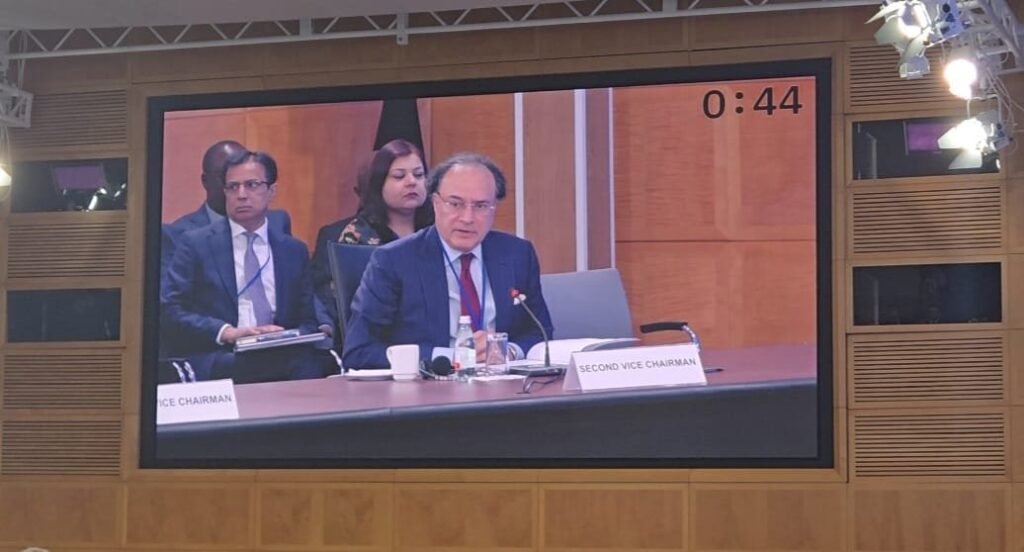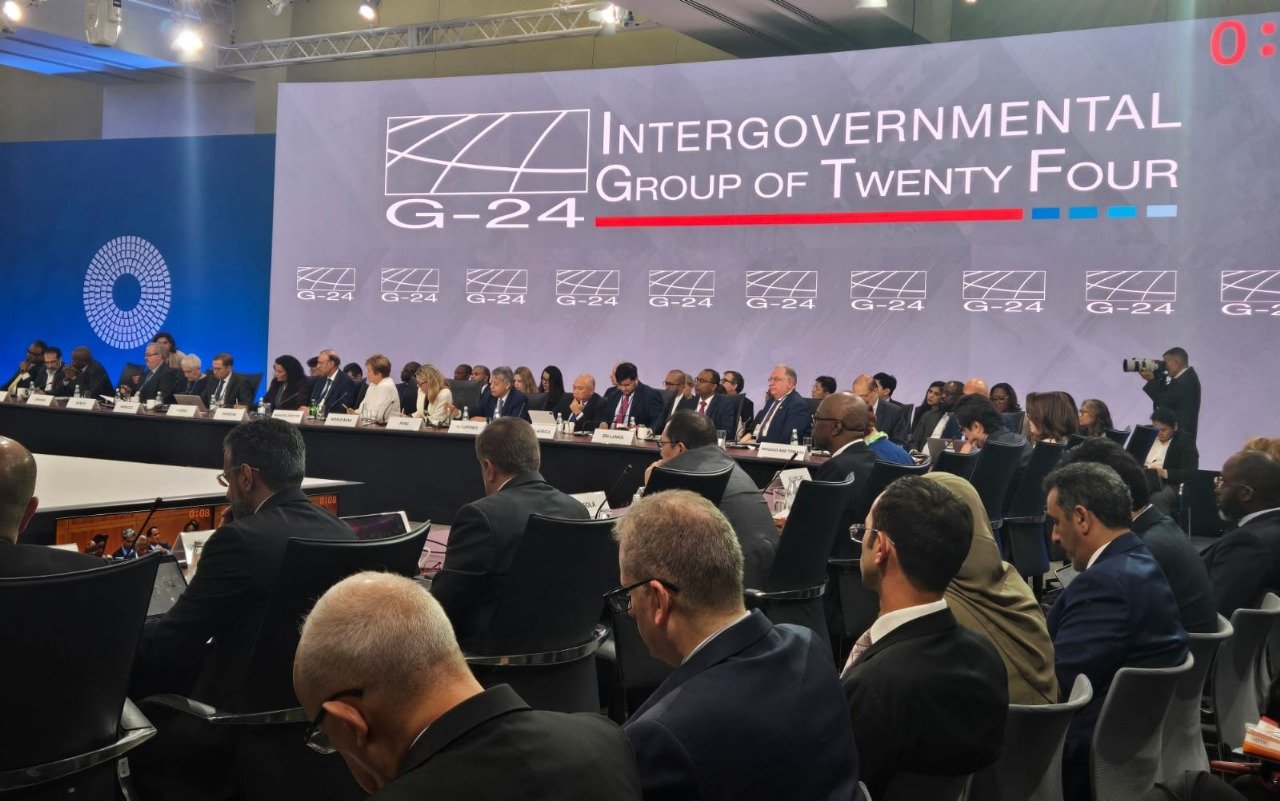Washington (TDI): Pakistan is driving a major transformation in its agricultural sector through a strategic blend of financial inclusion, technology adoption, and climate resilience, Finance Minister Aurangzeb said at a high-level panel during the World Bank-IMF Annual Meetings.
Speaking at the World Bank Group’s session titled “AgriConnect: Farms, Firms, and Finance for Jobs,” Minister Aurangzeb outlined Pakistan’s efforts to empower smallholder farmers, enhance productivity, and build a sustainable agri-economy.
The event brought together global leaders including World Bank President Ajay Banga and finance ministers from Ukraine and Guinea, focusing on how to support family farms that produce 80% of the world’s food.
Finance Minister Senator Muhammad Aurangzeb participated in the G-24 Ministers & Governors’ Meeting held today in Washington D.C. on the sidelines of the 2025 World Bank Group and IMF Annual Meetings today.
In his address, the Minister highlighted Pakistan’s macroeconomic… pic.twitter.com/fA2lqkhXWM
— Ministry of Finance, Government of Pakistan (@Financegovpk) October 14, 2025
Aurangzeb emphasized that agriculture remains the backbone of Pakistan’s economy, contributing nearly 25% of GDP and supporting millions of small farmers.
“We are focused on enabling the sector rather than controlling it,” he said, stressing the government’s role in creating a conducive environment for private sector-led growth.
Highlighting recent pilot projects, the Minister noted that initiatives offering improved seeds, fertilizers, satellite-based crop monitoring, and formal credit access have already shown promising results.
These reforms have boosted yields, increased farmer incomes, and reduced reliance on exploitative middlemen.

To expand these successes, Pakistan is encouraging the financial sector to increase agri-lending, especially for small and tenant farmers, through mechanisms such as first-loss guarantees, subsidized loans, and uncollateralized credit options.
Climate resilience was another focal point of his remarks. Aurangzeb pointed to the devastating impact of recent floods on rice crops, underscoring the urgency of adaptation.
Under Pakistan’s 10-year Country Partnership Framework with the World Bank, one-third of initiatives are dedicated to climate resilience and decarbonization. “The funding is there,” he said, “but timely deployment is key to dealing with climate shocks.”
The Minister also spotlighted Pakistan’s efforts in research and technology. Around 1,000 students are currently being trained in China in modern agricultural practices, mechanization, and agri-research, aiming to foster knowledge transfer and modernize domestic farming.
Read More: Pakistan, IMF Finalize Staff-Level Deal for $1.2bn Loan Tranche
On private investment, Aurangzeb reaffirmed Pakistan’s commitment to deregulation and welcomed investments in cold chain infrastructure, warehousing, and value-added agriculture. He noted rice exports are projected to reach $3.5 billion this year, reflecting the sector’s untapped potential.
Closing the session, he reiterated Pakistan’s determination to build a resilient, inclusive, and technology-driven agricultural economy, stating that when the full value chain is considered, agriculture contributes nearly 40% of the country’s GDP.
Earlier in the day, the Finance Minister also addressed the G-24 Ministers and Governors’ Meeting, where he highlighted Pakistan’s progress on macroeconomic stability and structural reforms, and called for stronger global cooperation on climate action.

Sohail Majeed
Sohail Majeed is a Special Correspondent at The Diplomatic Insight. He has twelve plus years of experience in journalism & reporting. He covers International Affairs, Diplomacy, UN, Sports, Climate Change, Economy, Technology, and Health.



